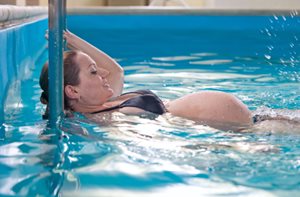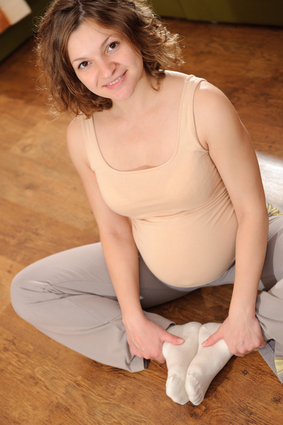Swimming, Exercise in Pregnancy: What You Need to Know

Some scientists have long suspected that the airborne chemicals commonly found in pools and cleaning products may be behind the enormous increase in inherited allergies seen over the past 50 years. A recent study found a link between exposure to chemicals while in the womb and susceptibility to conditions like asthma, eczema and hay fever.
The Journal of Occupational and Environmental Medicine published the findings of a study that showed chemical levels are the highest in crowded, unclean pools. When you're pregnant, you must take extra care to avoid exposure to potentially harmful chemicals and germs. Exercise is an important part of a healthy pregnancy, and swimming is a great fitness option for expecting mothers. If you enjoy swimming but want to avoid the unclean, crowded pools, you can visit a site like InTheSwim to see if there is a better option available for you. Protecting yourself and your baby's health must be top priority.
Before getting in the pool or doing any other kind of physical activity, understand the exercise basics for pregnant women. Consult your doctor if you have any concerns or questions.

Physical Activity During Pregnancy
Exercising regularly throughout your pregnancy can help you manage some of your pregnancy symptoms.
Each pregnancy is unique; therefore, it is important to talk with your doctor about your exercise plan for each pregnancy. Once you're cleared to exercise:
-
Do 30 minutes or more of moderate-intensity activity every day.
-
Let your body determine the exercise level. You are at the ideal exercise level when you can talk normally and do not become tired too quickly.
-
By the third trimester, you should do no more than three vigorous exercise sessions weekly.
Suggested Exercises
Cautions
-
Never exercise to the point of exhaustion.
-
Do not raise your body temperature too high – avoid hot spas, heavy sweating and reduce the amount of exercise you do on a hot/humid day.
-
Listen to your body and do not exercise on any given day if you don't feel up to it.
-
If you weight train, use low weights with medium to high repetitions.
-
Do not increase your programme’s intensity.
-
If you feel feverish or ill, avoid exercising.
Throughout your entire pregnancy, avoid contact and competition sports, as well as rollerblading, trampolining, horseback riding, scuba diving and downhill skiing.
After the fourth month of pregnancy avoid exercises that require you lie on your back. The baby’s weight may slow down the blood return to the heart. You can modify these exercises and lie on your side.
In the later stages of your pregnancy, avoid any activity that involves frequent direction changes, jumping and excessive stretching.
Warning Signs
-
Dizziness
-
Headache
-
Feeling faint
-
Chest pain
-
Heart palpitations
-
Calf swelling/pain
-
Swelling of the face, hands or feet
-
Contractions
-
Vaginal bleeding
-
Deep pubic or back pain
-
Abdominal cramping
-
Trouble walking
-
Unusual shortness of breath
-
Changes in your baby’s movements
-
Leaking amniotic fluid
If you notice any of these symptoms, contact your doctor, midwife or physiotherapist right away.
This article has been written by Marge Wilson, for The Pregnancy Centre
Demac Resources Pty Ltd 2013 - 2020. www.thepregnancycentre.com.au
About the author
Marge is a widowed mother of two teenage boys who writers about parenting and living as a single mom.